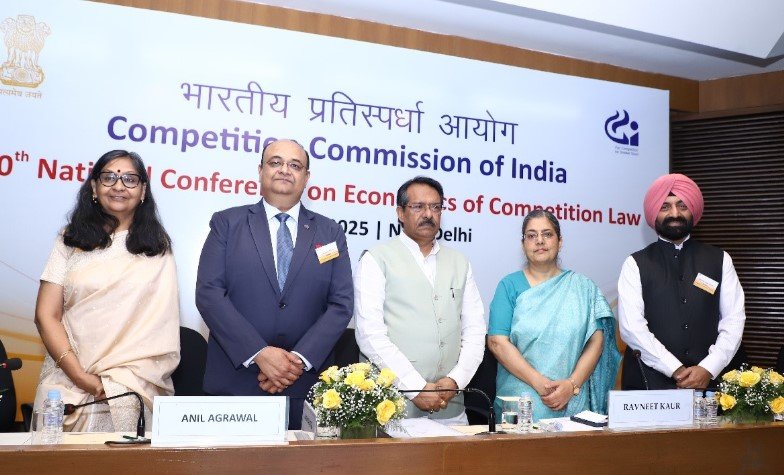South Africa’s Competition Commission is pushing back against tech giants like Google, demanding payments to local news publishers for using their content in AI summaries. This move, detailed in a February 2025 report, could set global standards for how search engines handle news in the AI era, influencing regulators in Europe and beyond.
The commission’s provisional report on the Media and Digital Platforms Market Inquiry calls for Google and platforms like Meta, YouTube, X, and TikTok to share revenue and boost traffic to South African media. It highlights how AI tools, such as Google’s AI Overviews, pull information from news sites without sending users there, hurting publishers’ ad income.
Commission’s Bold Recommendations
The report suggests annual payments from Google to news outlets ranging from R300 million to R500 million for three to five years. This aims to fix what the commission sees as an unfair dominance by big tech in online advertising and content distribution.
Experts say this could force changes in how AI systems credit and compensate sources. For instance, the commission proposes a 1% digital tariff on content used in AI summaries, plus fines up to 10% of revenue for non-compliance.

Regulators in other countries are watching closely. In the UK, groups have filed complaints with the Competition and Markets Authority over similar issues with AI Overviews reducing traffic to publishers.
The push comes amid global concerns. In Germany, non-profits and publishers lodged a complaint under the EU Digital Services Act, arguing AI summaries increase misinformation risks and threaten media diversity.
Google’s Strong Pushback
Google has rejected the proposals, calling them outdated and harmful to innovation. In a March 2025 blog post, the company argued that forcing subsidies would limit consumer choice and disrupt future investments in search technology.
A Google executive in sub-Saharan Africa stated the report misrepresents the tech giant’s role in media decline. They point out that news consumption has shifted to multiple platforms, and AI Overviews provide quick, relevant answers from various sources.
Despite this, Google faces mounting pressure. Recent data shows AI Overviews have led to traffic drops for news sites worldwide, with some publishers reporting declines of up to 50% since the feature’s rollout in early 2025.
The company emphasizes its contributions, like tools that help publishers monetize content. However, critics argue these do not offset the loss from fewer clicks.
Impact on South African Media
Local news outlets are struggling as digital ad revenue flows to tech platforms. The commission’s inquiry, launched in October 2023, found that Google holds a dominant position in search and ads, capturing most of the market.
This dominance affects small publishers the most, who rely on search traffic for survival. The report notes that without intervention, many could close, reducing diverse voices in South African journalism.
To illustrate the financial strain:
- Ad Revenue Share: Tech platforms take about 70% of digital ad spend in South Africa, leaving publishers with scraps.
- Traffic Loss: AI summaries could cut news site visits by 20-40% in the next year, per industry estimates.
- Payment Proposal: Up to $27 million annually from Google and others to fund local media.
These points highlight the urgent need for fairer revenue sharing.
Global Ripples and Future Outlook
South Africa’s actions are inspiring international efforts. Activists in Europe are urging regulators to adopt similar measures, potentially changing how the internet handles information worldwide.
For example, India’s rollout of AI Overviews in January 2025 sparked debates on search bias and competition law, echoing South African concerns.
If implemented, these rules could lead to broader reforms, like mandatory traffic referrals or transparent AI sourcing. However, big tech’s lobbying power remains a hurdle.
Experts predict ongoing legal battles, with possible fines and policy shifts by 2026. This case shows how a smaller nation can influence global tech norms through smart regulation.
Challenges and Criticisms
Not everyone agrees with the commission’s approach. Some argue it could stifle AI innovation and raise costs for users. Tech firms warn that tariffs might lead to reduced services in South Africa.
On the flip side, media advocates praise the move for recognizing journalism’s value. They call for collaboration between platforms and publishers to build sustainable models.
A key challenge is enforcement. The commission lacks direct leverage over global giants, but international alliances could strengthen its position.
Here’s a quick look at similar global cases:
| Country/Region | Action Taken | Key Outcome |
|---|---|---|
| UK | Complaint to CMA on AI Overviews | Ongoing investigation into traffic impact |
| Germany | DSA complaint against Google | Focus on misinformation and media plurality |
| India | AI Mode rollout scrutiny | Debates on competition law violations |
| EU | Broader digital platform probes | Potential fines up to 6% of global revenue |
This table shows the growing wave of regulatory scrutiny.
The debate ties into larger trends, like antitrust rulings against Google in the US for browser dominance, decided in August 2025. Such events add momentum to South Africa’s push.
As AI reshapes information access, balancing innovation with fair compensation remains key. Readers, what do you think about these proposals? Share your views in the comments and spread the word to keep the conversation going.






